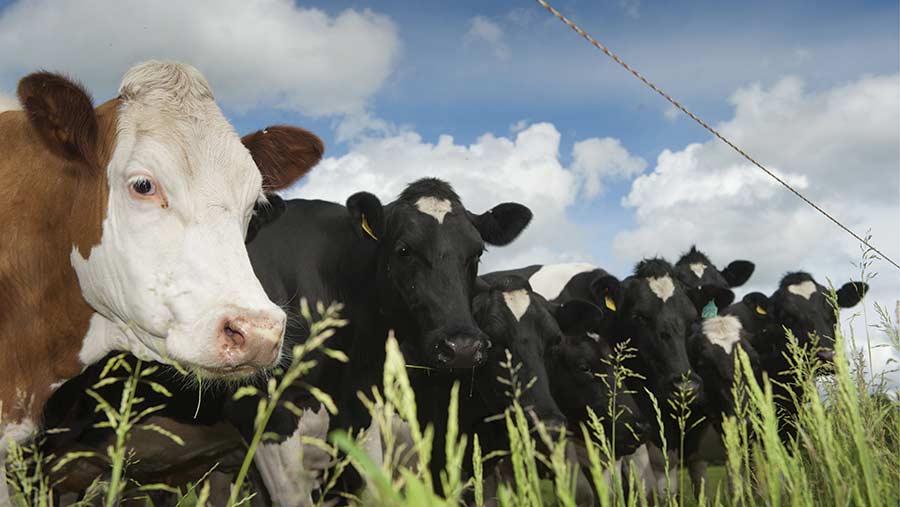Cut ammonia emissions to avert regulation, farmers urged
 © FLPA / Wayne Hutchinson/REX/Shutterstock
© FLPA / Wayne Hutchinson/REX/Shutterstock Farmers are being urged to reduce ammonia emissions from agriculture in an effort to stave off more regulation to improve air quality.
The NFU called for a joined-up approach between the government and farmers to reduce agricultural ammonia in the union’s response to Defra’s Clean Air Strategy consultation, which closed on Tuesday (14 August).
Agriculture is responsible for 88% of UK ammonia emissions, according to Defra figures. As well as reducing biodiversity, emmissions contribute to cardiovascular and respiratory disease – and mix with nitrogen oxides to contribute to smog.
See also: Ways to reduce farm ammonia emissions
The consultation proposes a permit system in the dairy sector, similar to the system that already applies to pigs and poultry. But the NFU is strongly opposed to the idea, arguing that it could cost farmers thousands of pounds for a permit and additional investment.
Code of practice
Defra is investing £3m over three years in support, advice and guidance on effective ways for farmers to reduce emissions from ammonia on their land. You can find a voluntary code of practice on reducing ammonia emissions online.
Farm practice
Rather than regulation, NFU environment forum chairman Mark Pope said Defra should work with the industry on improving farm practice to minimise ammonia emissions before considering a ban or imposing additional limits.
Farmers were in a “great position” to help the government meet its targets, said Mr Pope. But he added: “We believe it is essential to have confidence in the data collection of air pollutants so farmers can have a robust knowledge of the current situation and can chart progress.”
Lynette Steel, farm policy adviser at the Tenant Farmers Association, also cautioned against “rushing into unnecessary legislation”. Doing so could have a negative effect on farm competitiveness and agricultural production, she warned.
Barriers to innovation
“The livestock sector, predominately dairy farmers, will be affected by the draft strategy and with volatile markets and the increasing likelihood of a no-deal Brexit, we are concerned that moving directly to legislation will create problems for production and barriers to innovation.”
The Country Land and Business Association said farmers stood ready to help the government achieve its goal of cleaner air. But if regulation was introduced, it was essential for the government to provide appropriate advice and funding to allow businesses to adapt.
